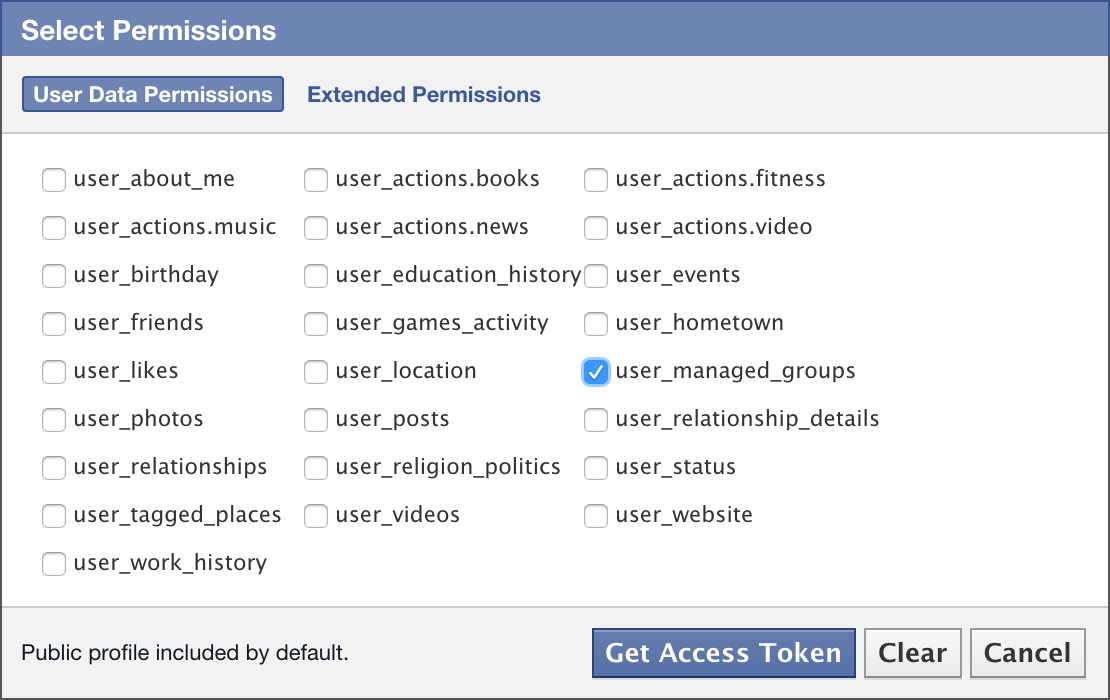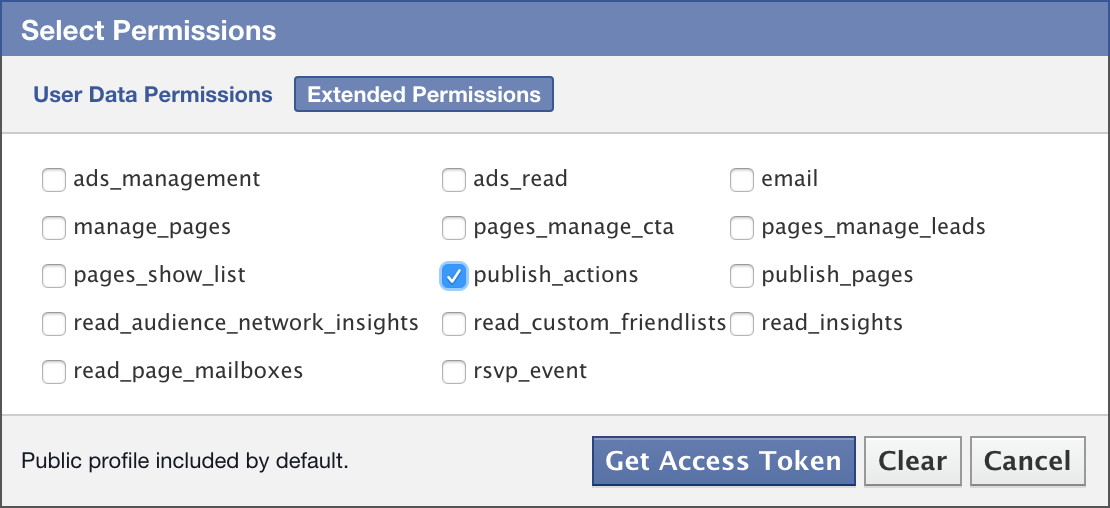Hackbot adds features to Facebook Groups through automation.
An instance of Hackbot is running on Hackathon Hackers.
$ npm install -g hackbot
Note: This process is annoying. Please consider implementing this through a web-based OAuth flow.
You'll need to set a few configuration options before using Hackbot: your Facebook Group ID, the refresh rate in milliseconds (5s is a good number), and the IDs of the group's moderators to the configuration file.
To generate an access token, open up the Facebook Graph API Explorer and make sure you're using a custom application. Click "Get Access Token" and make sure the user_managed_groups and publish_actions permissions are ticked.
Click the blue "Get Access Token" in the modal. Copy the short-lived access token and navigate in your browser to the following URL:
https://graph.facebook.com/oauth/access_token?
client_id=APP_ID&
client_secret=APP_SECRET&
grant_type=fb_exchange_token&
fb_exchange_token=SHORT_LIVED_ACCESS_TOKEN
Replace APP_ID, APP_SECRET, and SHORT_LIVED_ACCESS_TOKEN with the proper values. Take the long-lived (60 day) access token in the body and save it somewhere for safe-keeping. You'll need it when you run Hackbot below.
You can use the Graph API Explorer to find the numeric Graph API IDs of your group's moderators.
Keep in mind that Facebook's user IDs are unique to each application, so you'll have to get creative. Try digging through your friends list at /me/friends?limit=1000.
There will be much better usage documentation coming soon, but here's how it works:
$ hackbot GROUP_ID ACCESS_TOKEN -m MOD_ID1,MOD_ID2,MOD_ID3 -s close,delete --interval 5
Hackbot uses JavaScript Standard Style and Babel for ES6+ support.
$ git clone git@github.com:kern/hackbot.git
$ npm install
$ npm run dev -- [see usage above]
Lint before committing:
$ npm run lint
Hackbot is released under the BSD 3-Clause license. The initial prototype was made with caffeine at MHacks V by Alex Kern and Eva Zheng.




